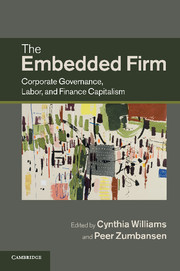Crossref Citations
This Book has been
cited by the following publications. This list is generated based on data provided by Crossref.
Kanjee, Anil
and
Sayed, Yusuf
2013.
Assessment policy in post-apartheid South Africa: challenges for improving education quality and learning.
Assessment in Education: Principles, Policy & Practice,
Vol. 20,
Issue. 4,
p.
442.
Amhag, Lisbeth
2013.
Creativity in and between Collaborative Peer Assessment Processes in Higher Distance Education.
Creative Education,
Vol. 04,
Issue. 07,
p.
94.
Lysaght, Zita
and
O'Leary, Michael
2013.
An instrument to audit teachers' use of assessment for learning.
Irish Educational Studies,
Vol. 32,
Issue. 2,
p.
217.
Sayed, Yusuf
and
Kanjee, Anil
2013.
Assessment in Sub-Saharan Africa: challenges and prospects.
Assessment in Education: Principles, Policy & Practice,
Vol. 20,
Issue. 4,
p.
373.
Wiliam, Dylan
2013.
How Is Testing Supposed to Improve Schooling? Some Reflections.
Measurement: Interdisciplinary Research & Perspective,
Vol. 11,
Issue. 1-2,
p.
55.
Fahlvik, Morten
2014.
Practical Applications and Experiences in K-20 Blended Learning Environments.
p.
239.
Lankes, Theresa
2014.
The Corporate Responsibility to Respect Human Rights: Lessons Drawn from Corporate Criminal Liability and Moral Imagination.
SSRN Electronic Journal,
Jones, Jane
2014.
Student teachers developing a critical understanding of formative assessment in the modern foreign languages classroom on an initial teacher education course.
The Language Learning Journal,
Vol. 42,
Issue. 3,
p.
275.
Haugdal, Marit Grande
and
Sundfaer, Hilde
2014.
Practical Applications and Experiences in K-20 Blended Learning Environments.
p.
249.
Earle, Sarah
2014.
Formative and summative assessment of science in English primary schools: evidence from the Primary Science Quality Mark.
Research in Science & Technological Education,
Vol. 32,
Issue. 2,
p.
216.
Chetcuti, Deborah
and
Cutajar, Catherine
2014.
Implementing Peer Assessment in a Post-Secondary (16–18) Physics Classroom.
International Journal of Science Education,
Vol. 36,
Issue. 18,
p.
3101.
Hughes, Gwyneth
Wood, Elizabeth
and
Kitagawa, Kaori
2014.
Use of self-referential (ipsative) feedback to motivate and guide distance learners.
Open Learning: The Journal of Open, Distance and e-Learning,
Vol. 29,
Issue. 1,
p.
31.
Hirsh, Åsa
2015.
IDPs at Work.
Scandinavian Journal of Educational Research,
Vol. 59,
Issue. 1,
p.
77.
DeLuca, Christopher
Klinger, Don
Pyper, Jamie
and
Woods, Judy
2015.
Instructional Rounds as a professional learning model for systemic implementation of Assessment for Learning.
Assessment in Education: Principles, Policy & Practice,
Vol. 22,
Issue. 1,
p.
122.
Gamlem, Siv M.
2015.
Feedback to support learning: changes in teachers’ practice and beliefs.
Teacher Development,
Vol. 19,
Issue. 4,
p.
461.
Cope, Bill
and
Kalantzis, Mary
2015.
Interpreting Evidence-of-Learning: Educational research in the era of big data.
Open Review of Educational Research,
Vol. 2,
Issue. 1,
p.
218.
Sadeghi, Karim
and
Abolfazli Khonbi, Zainab
2015.
Iranian university students’ experiences of and attitudes towards alternatives in assessment.
Assessment & Evaluation in Higher Education,
Vol. 40,
Issue. 5,
p.
641.
Vlachou, Maria A.
2015.
Does Assessment for Learning Work to Promote Student Learning? The England Paradigm.
The Clearing House: A Journal of Educational Strategies, Issues and Ideas,
Vol. 88,
Issue. 3,
p.
101.
Haugdal, Marit Grande
and
Sundfaer, Hilde
2015.
Curriculum Design and Classroom Management.
p.
311.
Loughland, Tony
and
Kilpatrick, Laetitia
2015.
Formative assessment in primary science.
Education 3-13,
Vol. 43,
Issue. 2,
p.
128.



